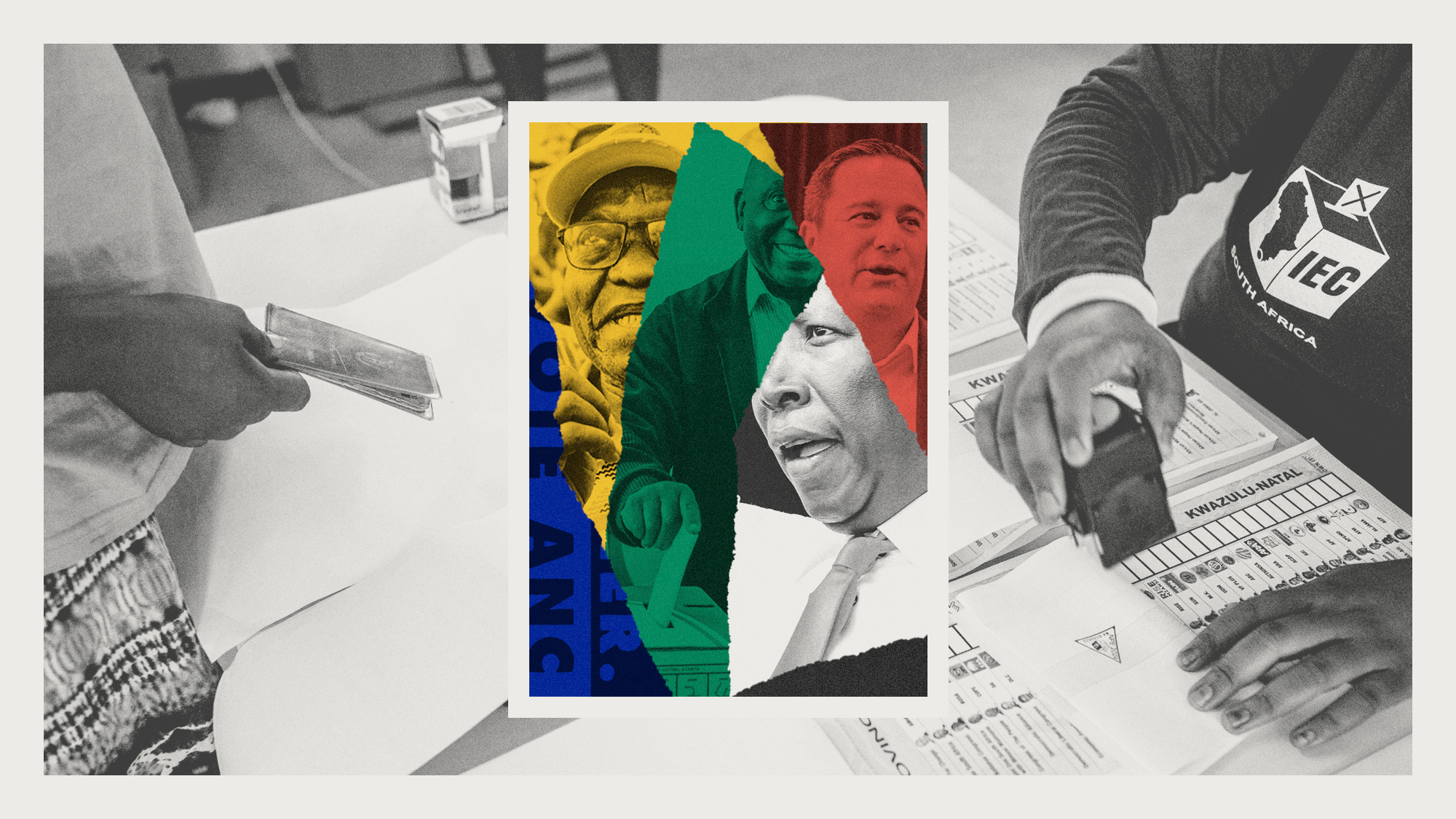What's at stake in South Africa's election?
High poverty and crime undermine ANC rule, hopes for democracy


A free daily email with the biggest news stories of the day – and the best features from TheWeek.com
You are now subscribed
Your newsletter sign-up was successful
South Africans head to the polls Wednesday in what might be the country's most consequential election since the end of apartheid 30 years ago, said The Associated Press. The African National Congress — the party of Nelson Mandela — has ruled for three decades but now faces "rising discontent caused largely by high levels of unemployment and poverty." That means a majority of South Africans this week could vote for another party "over the one that led them to freedom."
If the ANC does lose its grip on power it won't be because other parties stepped forward "but because its own disgruntled supporters have stayed home," John Eligon said in The New York Times. They have reason: Electrical outages are frequent. Unemployment is 42 percent. Poverty is higher. The ANC once had a "heroic reputation" for ending apartheid. Now that is "trumped by anger over its inability to improve living conditions for the majority." Which is why voters seem ready for a change.
What did the commentators say?
This election is South Africa's "most important since 1994," said The Economist. The ANC has made its own problems — the party is an "ideological mishmash" that combines ideas from communism, Christianity and Black nationalism, among other influences. And it has presided over a "blurring of the lines between party and state" whereby party loyalists are selected over jobs over their more competent rivals. Rank-and-file South Africans, meanwhile, are pessimistic about their own prospects. "Such despondency is fertile ground for populism."
The Week
Escape your echo chamber. Get the facts behind the news, plus analysis from multiple perspectives.

Sign up for The Week's Free Newsletters
From our morning news briefing to a weekly Good News Newsletter, get the best of The Week delivered directly to your inbox.
From our morning news briefing to a weekly Good News Newsletter, get the best of The Week delivered directly to your inbox.
A majority of young adult South Africans in recent surveys "rejected the idea that democracy is always the best form of government," The Guardian said in an editorial. Just 40% of them are even registered to vote. There are plenty of "disappointments and failures" to make continued leadership of the ANC unpalatable, but its rivals "have yet to offer a convincing alternative" to voters. Change may come anyway. "Ultimately, no nation is served by the dominance of a single party in perpetuity."
What next?
Even if the ANC gets less than a majority of the vote, it will still likely receive the largest share of the electorate. That means it will have to partner with other parties to form a government, "opening the door for a new era of coalitions," said The Globe and Mail. That will give "lucrative leverage" to small parties like the Patriotic Alliance, a "populist anti-immigrant" faction formed by a businessman who previously served a jail term for fraud. That may play well. "Voters are increasingly lured by populist messages as they become disillusioned with the ANC and older establishment parties."
Another party that stands to benefit: The uMkhonto weSizwe — or MK — formed by former President Jacob Zuma, who also served prison time for corruption. Zuma is personally ineligible for office, but his party nonetheless "has mobilized thousands of his supporters behind its populist platform," William Shoki said in The New York Times. Few voters, though, seem hopeful that democracy can improve their lives. "Fed up by the government's failure to improve their lives, many have simply given up on politics."
A free daily email with the biggest news stories of the day – and the best features from TheWeek.com
Joel Mathis is a writer with 30 years of newspaper and online journalism experience. His work also regularly appears in National Geographic and The Kansas City Star. His awards include best online commentary at the Online News Association and (twice) at the City and Regional Magazine Association.
